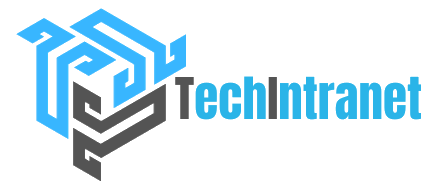Understanding AI’s Role in the Revenue Game
AI, at its core, is about mimicking human intelligence to automate tasks, analyze data, and provide insights. In the context of sales and marketing, AI goes beyond automation—it helps teams predict buyer behavior, personalize outreach, optimize campaigns, and streamline decision-making.
According to a report by McKinsey & Company, companies that have adopted AI in marketing and sales have seen revenue increases of up to 20% and cost reductions of up to 30%.
Personalized Customer Experiences at Scale
One of the biggest advantages of AI in marketing is hyper-personalization. Consumers today expect content and offers tailored specifically to their interests. Manual segmentation might work for smaller datasets, but AI can process massive volumes of customer data—demographics, behavior, past purchases, social media activity—and create micro-targeted campaigns.
A study by Epsilon indicates that 80% of consumers are more likely to make a purchase when brands offer personalized experiences.
Smarter Lead Scoring and Qualification
Sales teams often struggle with lead prioritization. Traditional scoring systems are prone to bias and guesswork. AI changes that by analyzing past conversion data, CRM records, and engagement history to predict which leads are most likely to convert.
With predictive lead scoring, sales reps can focus their time on high-intent prospects instead of chasing cold leads.
Automated Content Creation and Optimization
AI tools like Jasper, Copy.ai, and Grammarly assist marketers in drafting emails, ad copies, social media posts, and blog articles. While the creative spark still comes from humans, AI can significantly speed up the process by suggesting formats, optimizing headlines, and ensuring SEO best practices are followed.
Real-Time Chatbots for Lead Engagement
With AI-powered chatbots, businesses can now engage with visitors in real time, answering questions, booking meetings, and capturing leads instantly. According to IBM, businesses can save up to 30% in customer support costs by deploying AI chatbots.
Predictive Analytics for Smarter Campaign Decisions
AI can identify when a particular segment is most likely to convert, the best times to send emails, or even which product a customer is likely to buy next. Tools like Google Analytics 4, Adobe Sensei, and Marketo are increasingly integrating AI models that help teams make data-backed, ROI-driven choices.
Sales Forecasting Gets a Facelift
AI uses historical data, seasonality trends, and current pipeline metrics to provide highly accurate forecasts. According to Salesforce, companies using AI for forecasting see up to 45% improvement in forecast accuracy (source: https://www.salesforce.com).
Email Marketing Reimagined
Machine learning models analyze open rates, click-through behavior, and user preferences to optimize send times, subject lines, and content for every subscriber. Campaign Monitor reports that AI-personalized emails can generate 6x higher transaction rates.
Voice and Visual Search Optimization
With the rise of voice assistants like Siri, Alexa, and Google Assistant, marketers must adapt their content for voice search optimization. Similarly, visual search capabilities—powered by AI tools like Google Lens—are changing how consumers discover products.
Wrapping Up: Why AI is No Longer Optional
AI is not a futuristic luxury—it’s a present-day necessity. From personalized marketing to smarter sales strategies, the impact of AI on ROI is undeniable. As consumer behavior becomes increasingly dynamic and digital-first, only those who leverage AI effectively will remain competitive.
Ready to leverage AI for your marketing and sales success? The earlier you begin, the sooner you’ll see measurable, scalable impact.

